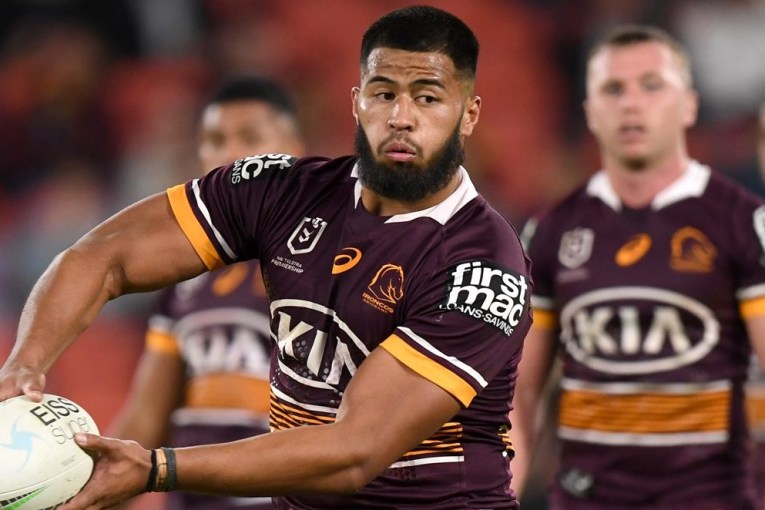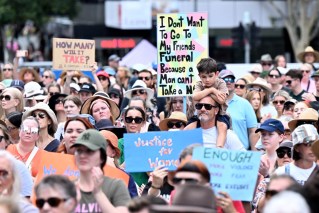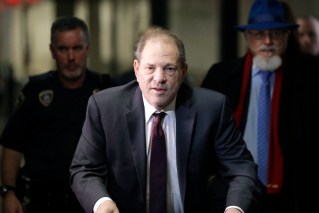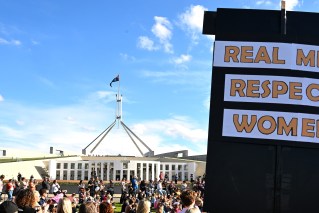PM ‘sorry’ for slow vaccine rollout amid two more deaths, ongoing supply issues
Australia is now delivering more than one million vaccinations a week, with two million jabs in Queensland to date. But that comes as Scott Morrison finally apologises for the slow vaccine rollout and the state’s top doctor says more Pfizer doses are desperately needed.
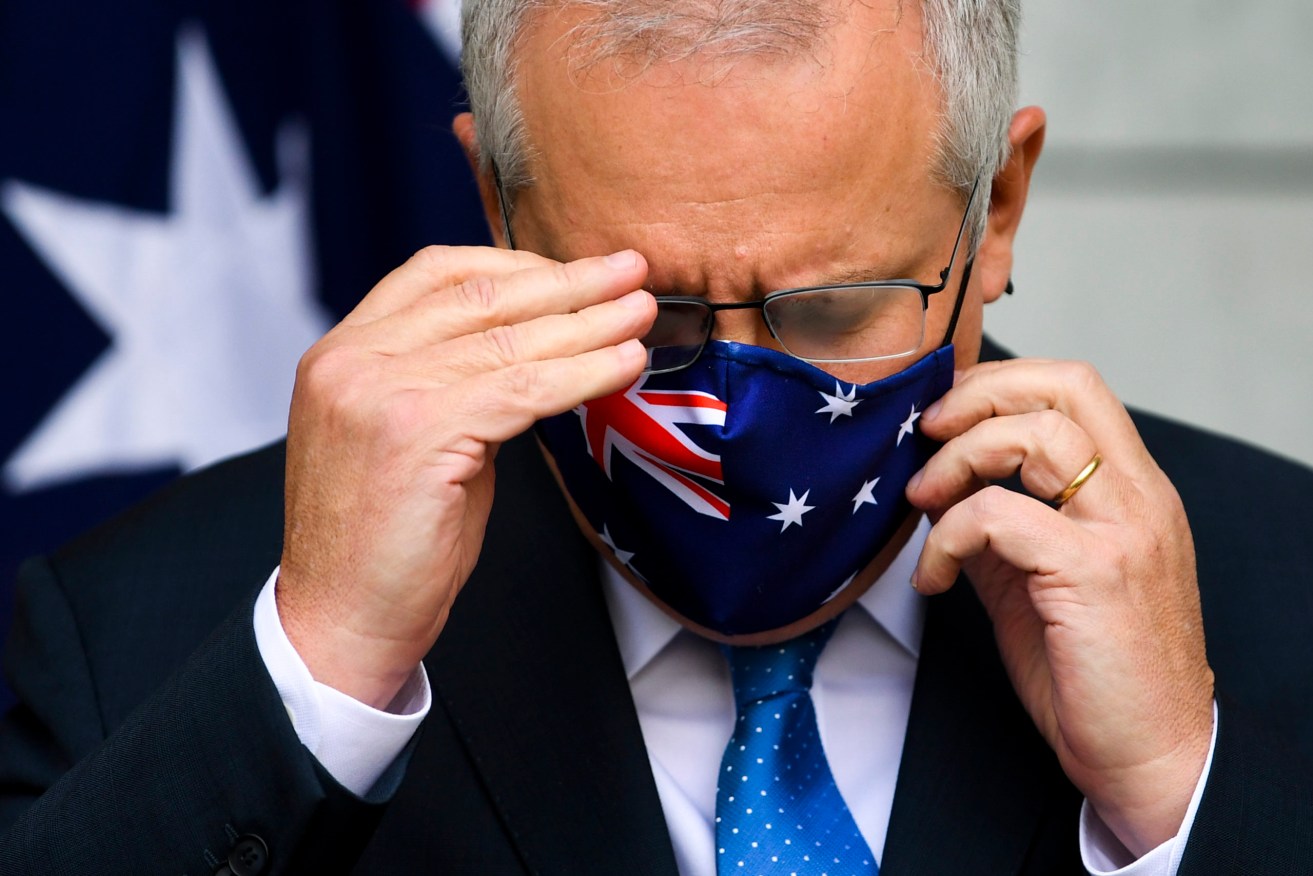
Prime Minister Scott Morrison has tested positive for Covid. (AAP Image/Lukas Coch)
Two newly-reported deaths of people in their 40s, who received the AstraZeneca vaccine, have complicated Prime Minister Scott Morrison’s ongoing efforts to encourage people to take up the vaccine that Australia has in greatest supply. He and other officials continue to urge people to get vaccinated as the Delta variant of COVID-19 sweeps the country.
Today, Morrison said he was “certainly sorry” that Australia had failed to meet previously-outlined vaccination targets and timeframes. He announced more pharmacies would offer AstraZeneca in an effort to accelerate the program, with the same indemnity arrangements as given to GPs.
“I’m sorry that we haven’t been able to achieve the marks that we had hoped for at the beginning of this year – of course I am,” he told reporters in Canberra on Thursday.
“But what’s more important is that we’re totally focused on ensuring that we’ve been turning this around.”
As the Palaszczuk Government again changes COVID-19 restrictions, to manage the risks, Deputy Premier Steven Miles today revealed another milestone in efforts to protect Queenslanders.
“We’re really excited to report that we passed two million vaccines in Queensland, a credit to our fantastic health workers and of course every Queenslander who has come forward to get vaccinated,” Miles said.
That figure, which includes more than 800,000 doses delivered by Queensland Health, is part of a national total that has just surpassed 10 million – including a new daily record of 184,000 jabs. Australia has around 20 million adults, and has yet to follow other countries in recommending COVID-19 vaccinations for children.
More than 110 pharmacists have started administering AstraZeneca jabs across Australia but that is expected to rise to about 470 by the end of the month.
Morrison said the expansion slated for September would be brought forward to mid-next month.
Morrison yesterday announced one million doses were being administered in Australia each week, partly because Pfizer had agreed to fast-track some contracted supplies.
“I’ll be open with you, we’ve had our challenges with this program,” Morrison told journalists, who had been reporting on the challenges for months.
Queensland’s Chief Health Officer, Jeannette Young, today said challenges remained on the supply side, including for the States. She said Australia did not have enough vaccines to protect the entire population, “to mitigate the spread and the risk of spread of this virus, particularly the Delta variant”.
Young said the short supply of vaccines for younger people should prompt more older Australians, those most at risk, to get vaccinated, particularly when the risk of an outbreak of the Delta variant is “escalating”.
“Today, it is more important than ever that any Queenslander who is 60 years of age or older, immediately, if they haven’t had their first dose of AstraZeneca – which is about 30 per cent of people in that age group – please go and get that first dose,” Young said.
“That is becoming very important.”
For people under 60, Young said “as soon as possible when we have Pfizer vaccine available, please come and get it”. Queensland Health will not be able to confirm appointments for several months.
The AstraZeneca vaccine comes with a higher risk of blood clots, and, on official expert advice, is only recommended for those aged over 60. Tasmanian health authorities today confirmed a man in his 40s had died after receiving the first dose of AstraZeneca, one of two in Australia in the past week, and the sixth overall to date.
After Morrison previously suggested younger Australians could get AstraZeneca vaccines, Young recommended they instead wait for Pfizer to become available – even going so far as to say she did not want an 18-year-old who might not have died of COVID-19 instead dying of blood clots.
Young has continued to urge people to follow that advice, and talk to their GP, while Morrison has made veiled criticism of the national expert advisory group for making restrictive age recommendations and, he said, contributing to vaccine hesitancy. He today doubled down on his previous comments, saying 76,396 Australians under 40 had received AstraZeneca since then, and more could speak to their GP and give informed consent to follow suit.
Morrison sought to address any hesitancy in an interview today on 4BC, where he said: “Please, Queensland, particularly if you’re in the older population, please go and get AstraZeneca, it’s a totally safe vaccine for you.”
Young was today about vaccine hesitancy, and Morrison’s suggestion that people regard vaccines as the way out of lockdowns and restrictions, and reiterated it was still a matter of supply and demand.
“It’s a bit hard to discuss vaccine hesitancy when, to be blunt, we don’t have enough vaccine to offer people,” Young said.
Stocks of AstraZeneca are in good supply – six million have already been administered – but Pfizer continues to be rationed among the states and territories on a per capita basis. Morrison said the Commonwealth would fast-track allowing more pharmacies to administer AstraZeneca and acknowledged people could potentially avoid a GP consultation to do so.
“We’re all responsible for our own health,” Morrison said, when asked about the available avenues for people seeking informed consent.
The move will exacerbate a long-running dispute between GPs and pharmacists over vaccinations and health advice.
Morrison told the ABC’s Rebecca Levingston this morning other countries had challenges too, particularly the United Kingdom.
“We have seen that the deaths and the hospitalisation and ICUs are rapidly rising,” Morrison said.
“And this is a country with I think about 68 per cent double dose vaccination, predominantly with AstraZeneca. And so we are watching closely.”
